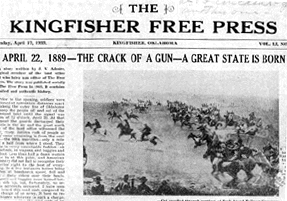 Free land. No property taxes. Abundant, affordable labor. Customers who spend just about every dollar they make. Financing, if you need it. In the perfect location to do business across the country and around the world. Baltimore’s disadvantaged neighborhoods are every entrepreneur’s teenage dream.
Free land. No property taxes. Abundant, affordable labor. Customers who spend just about every dollar they make. Financing, if you need it. In the perfect location to do business across the country and around the world. Baltimore’s disadvantaged neighborhoods are every entrepreneur’s teenage dream.
Candidates are fond of talking about “Change.” It’s an understandable reaction to the fact that the previous administration – and the one before that and before that – just spent the past 4, 8 or however many years in office, spent billions of dollars and yet somehow managed make zero progress toward resolving the city’s major problems.
It’s only natural that people want change. Certainly the 150,000+ residents of Baltimore who live below the poverty line want change. And the $150,000+ on top of them who are considered “low income.” They want change too. And if they’re smart and/or caring, there’s the other 300,000 above them who realize that the quality of their lives in the city would be very substantially better if he bottom 300,000 were doing well.
Yeah, everyone wants change and candidates are out there offering it to them, promising jobs, better education, less crime and whatever else sells. Some of them seem better than others. So we vote and elect or re-elect everyone and then it’s déjà vu all over again and nothing changes. Not really.
Nothing changes because incumbents tend to be re-elected and the new guys have more or less the same mindsets as their predecessors. It’s hard, really hard to find candidates who understand problems and imagine solutions differently than the officials they aspire to replace.
Who knows? Maybe it’s our fault for trusting our elected officials. Like the Gin Blossoms once told us, “If you don’t expect too much from me, you might not be let down.” But then it’s human nature, isn’t it, to be hopeful and to believe that people tell the truth and know what they’re talking about. Unfortunately, politicians – even the ones who claim they’re not – over-promise and, more often than not, miss the point. The reality is that no one can solve problems they don’t understand. If you elect someone who doesn’t get it, well, bummer, that’s it for the next four years and the cycle of disappointment continues.
The reality is that change doesn’t start with programs and legislation – and certainly not with the unfounded, often insincere promises of people telling you want they think you want to hear. In fact, change isn’t even a government thing. Quite to the contrary, change needs to begin inside our heads first, in the minds of our government leaders, sure, but even more importantly, in the private sector where real people and companies live, work and fight daily to control their own destinies.
Ladies and gentlemen, don’t think for a moment that the new Mayor or City Council are going to save Baltimore. They’re going to help, if they’re capable leaders and administrators and so inclined, but recovery and growth, the better schools the city so desperately needs, even combating crime are ultimately up to you, not your government. You are the economy and, make no mistake about it, the economy is in charge. That’s you we’re talking about, workers and business-owners alike, not the handful of full-time and part-time officials who occupy City Hall.

Financially speaking, the city government is only a $2.5 billion operation that’s barely holding it together. It doesn’t have the money to solve Baltimore’s biggest problems even if the Mayor and City Council knew what to do. At best, it can only try to chip away at them with no material impact. No. Only the private sector, only the economy of Baltimore has the resources to snatch victory from the jaws of defeat.
The fact is, government – and Baltimore’s city government is no exception – is, at best, a facilitator of change. Real change, self-sustaining change requires a quantum shift in the perspective and attitude of the private sector. It’s a complex thing, this “quantum shift” we’re talking about, but it’s surprisingly easy to describe.
Right now Baltimore is down. For decades, people ¬– including our elected officials, their occasional bursts of positive rhetoric notwithstanding – have conditioned us to believe that Baltimore is in serious trouble. And it is. Development around the harbor and in certain segments of the economy related to, let’s say, Johns Hopkins, the University of Maryland, Under Armor and other corporate players has been impressive, but with limited impact on the majority of the city that is still struggling. And while it’s understandable that politicians are attracted to tall buildings overlooking the water and other shinny things, those successes can be a distraction from the real work that needs to be accomplished.
Okay, enough philosophizing. We have a shinning thing of our own to talk to you about, a change of perspective that could, we think, affect everything for the better in a sweeping, all-inclusive way.
Here’s the trick… Instead of looking at the city’s disadvantaged neighborhoods as an overwhelming, pretty much hopeless mess, let’s think of them for what they are: Baltimore’s New Frontier. What are we talking about?
Think about the advantages these neighborhoods have to offer…
- Maryland is a mid-Atlantic state. The city is ideally located for companies interested in doing business on the east coast of the United States. We have the harbor, the train service, the airports and Interstate highways that give companies operating here convenient access to markets nationally and worldwide.
- The city has huge reserves of vacant and abandoned property. Yes, these properties are an eyesore, but they’re also land and structures that can be given away, for free, to entice employers to move into the city’s disadvantaged neighborhoods. And giving them away doesn’t cost the city a dime.
- We can offer employers a zero property tax rate for years – without the city losing revenues because these vacant and abandoned properties aren’t currently paying any property taxes.
- We have tens of thousands of un- and under-employed people who would jump at the chance to work long and hard for a decent wage or salary with basic benefits.
- We have a banking sector hungry for business that will provide all the money established employers need to setup and operate.
- And we have a good 300,000+ consumers in these neighborhoods whose “marginal propensity to consume” is currently 1. What’s that mean? It means that, for all intents and purposes and for the foreseeable future, these people are going to spend, locally, right here in Baltimore, every dollar they make.
Folks, if you’re a local, regional or national employer, Baltimore, Maryland – specifically its expansive disadvantaged neighborhoods – is your dream come true. Baltimore is the home of exceptional opportunity, the new frontier where you can make extraordinary profits. All you need to do is open your eyes to it, have the courage to make a minor leap of faith and show up.
And all the voters need to do is elect a new Mayor and City Council who gets it and are willing to do whatever it takes to open the city’s new frontier to the private sector, with big and bold incentives and marketing that will make employers the offers they can’t refuse.
And that will be the change you’ve been waiting for all these years.

